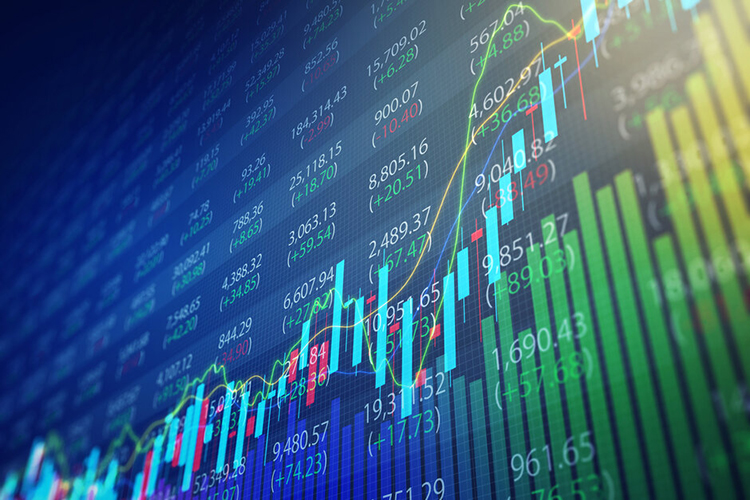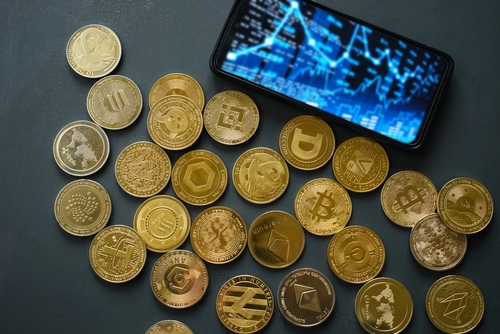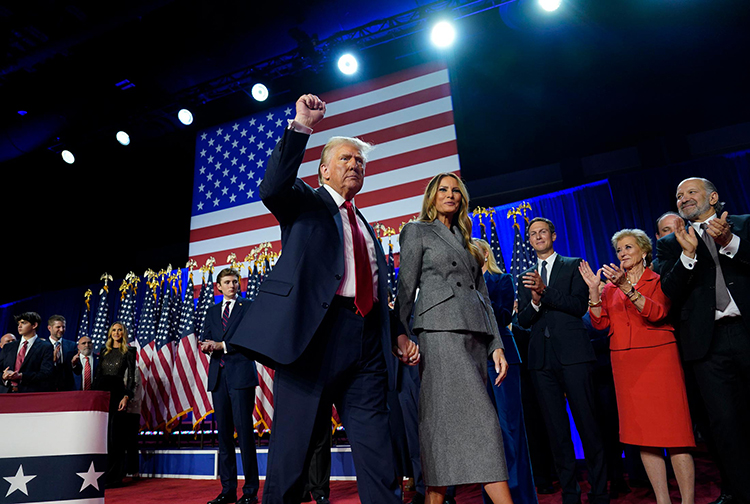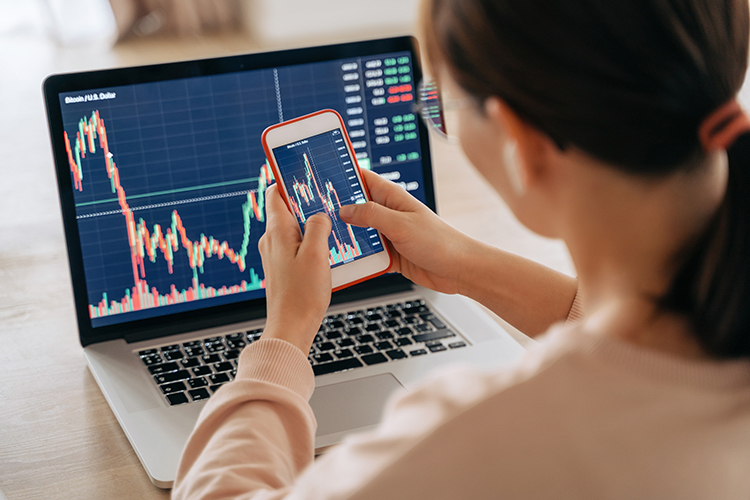Key Takeaways
- Japanese stocks have rebounded, driven by strong corporate earnings, despite uncertainty surrounding the US presidential election. The Topix index rose 0.8% to 2,664.26, and the Nikkei 225 gained 1.1% to 38,474.9.
- Trump Media’s stock soared up to 35% after Donald Trump’s presidential election win, boosting his net worth by approximately $500 million. Amazon’s stock also surged to a record high, driven by strong financial results and declining valuation.
- Nvidia has surpassed Apple as the world’s largest company by market capitalization, fueled by its leadership in artificial intelligence technology.
- Australia’s Treasurer Jim Chalmers warned of economic pain from Trump’s policies, including reduced output and inflation. While Australia is better positioned than other nations, it won’t be immune to trade tensions.
- Bitcoin surged past $70,000, fueled by ETF inflows and Trump’s pro-crypto stance, positioning it as a key asset to watch amid election uncertainty and market challenges .

IPO’s in the week
- Aduro Clean Technologies Inc. (Nasdaq: ADUR), a green technology company, traded at $4.25 per share. The company develops a novel chemical conversion process to transform waste plastics and low-grade renewable oils into renewable fuels and specialty chemicals. Aduro Clean Technologies serves customers worldwide. On November 7, 2024, the trading volume reached 1,098,901.
- Willow Lane Acquisition Corp. (Nasdaq: WLACU), a blank check company, traded at $10.00 per share. The company is formed to pursue a merger, amalgamation, share exchange, asset acquisition, share purchase, reorganization or similar business combination with one or more businesses. On November 8, 2024, 11,000,000 shares were traded.
- GSR III Acquisition (Nasdaq: GSRT), a blank check company incorporated in the Cayman Islands, traded at $10.00 per share as of November 8, 2024. The company’s purpose is to effect a merger, capital stock exchange, asset acquisition, stock purchase, reorganization or similar business combination with one or more businesses. On November 8, 2024, 20,000,000 shares were traded.

Markets this week
- Japanese stocks rebounded on Monday, driven by strong corporate earnings, despite US presidential election uncertainty. The Topix index rose 0.8% to 2,664.26 and the Nikkei 225 gained 1.1% to 38,474.9. This marked a successful first day of extended trading hours at the Tokyo Stock Exchange, a change implemented for the first time in 70 years.
- Trump Media’s stock soared up to 35% at opening bell after Donald Trump’s presidential election win, before slightly trimming its gains. This rally boosted Trump’s net worth by approximately $500 million.
- Amazon’s stock surged to a record high, surpassing its July peak, driven by strong financial results and declining valuation. Amazon Web Services (AWS) momentum has fueled growth.
- SEC crypto enforcement to roll back under Trump. Trump vows to fire SEC Chair Gensler, paving way for new regulations.
- Bitcoin surged past $80,000, driven by President-elect Trump’s crypto-friendly stance and a favorable Congress. Traders anticipate supportive regulation, with Bitcoin up 91% this year amid strong demand for U.S. crypto ETFs and rate cuts.
- The bond market rebounded after Trump’s election win, but concerns remain. His fiscal plans could boost inflation and the budget deficit, potentially driving 10-year Treasury yields back to 5%.
- JPMorgan expects Trump’s second term to be impactful, with policy changes on taxes, deregulation, and crypto boosting growth. Tax cuts could raise stock prices, while deregulation benefits banks.
- After Trump’s win boosted stocks, investors are now focused on lasting market trends. Small-cap stocks may benefit from tariffs, while rising labor costs and energy policies create mixed prospects.
- China’s securities regulator urged firms to support investment and financing for stable market growth. Following recent volatility, investors await more policy support. Discussions also focused on attracting foreign investment and enhancing market tools.
- Apple’s growth will focus on smaller ventures like smart glasses and wearables, rather than another iPhone-sized breakthrough. Despite challenges with projects like self-driving cars and Vision Pro, its ecosystem remains key to success.

Politics Weekly
- Donald Trump’s win accelerates chip subsidy deal finalization. Companies like Intel, Samsung, and Taiwan Semiconductor rush to secure agreements. Republicans explore reforms to the semiconductor law.
- Abu Dhabi and Riyadh are vying for Gulf financial dominance, attracting Wall Street giants like BlackRock and Goldman Sachs to access their vast wealth funds and drive projects in data, energy, and AI.
- Silicon Valley Trump supporters, like Palmer Luckey and Joe Lonsdale, anticipate startup-friendly policies under the new administration, with potential benefits in crypto regulation, capital gains, and antitrust. Lucky and others are in touch with Trump’s transition team for key appointments.
- Trump’s 2024 re-election has raised concerns about America’s direction, with fears of setbacks in civil rights, education, and environmental protections. Some see it as a sign of deepening division and values at odds with inclusivity.
- China announced a $1.4 trillion debt swap to ease local government debt but held off on new stimulus, leaving room to respond to a potential trade war with Trump. More aggressive fiscal measures may come in 2025.
- Russia is facing heavy losses in Ukraine, with 1,500 casualties per day in October. UK’s Admiral Sir Tony Radakin warned of 700,000 total casualties and significant economic strain. He reassured Ukraine of ongoing Western support despite the growing threat from authoritarian states.
- German opposition leader Friedrich Merz, leading in polls ahead of a snap election, expressed interest in striking deals with incoming US President Trump to enhance Germany’s global standing. Merz criticized Chancellor Olaf Scholz as a “lame duck” and urged an early election after the collapse of the coalition government.
- Australia’s Treasurer Jim Chalmers warned of economic pain from Trump’s policies, including reduced output and inflation. While better positioned than other nations, Australia won’t be immune to trade tensions. The government has been preparing for potential challenges.
- Wilbur Ross, former US Commerce Secretary, said Trump is likely to exempt Canadian energy imports from tariffs due to Canada’s crucial role in US energy supply, though other sectors may be impacted by his protectionist policies.

Technology Advancements this week
- JPMorgan is introducing instant dollar-euro settlements using blockchain technology through its Kinexys network. This move is expected to generate additional revenue through foreign exchange spreads. The bank anticipates its digital ledger platform will break even within three to five years.
- Hon Hai Precision Industry Co., Apple’s primary manufacturing partner, reported sluggish October sales growth of 8.6% to NT$804.9 billion ($25.2 billion), the slowest since February. This slowdown, combined with Hon Hai’s role as a key server assembly partner to Nvidia Corp., raises concerns about demand momentum for AI infrastructure and iPhones. The weak sales growth aligns with Apple’s cautious holiday quarter forecast, with analysts expecting Hon Hai’s quarterly sales to reach NT$2.13 trillion, representing 15% growth.
- Apple is set to receive its first fine under the EU’s Digital Markets Act for anticompetitive App Store practices. The penalty follows a €1.8 billion fine in the Spotify case, where Apple was accused of blocking cheaper deals outside the App Store. This marks the latest tension between Apple and EU regulators.
- Nvidia has surpassed Apple as the world’s largest company by market capitalization, fueled by its leadership in artificial intelligence technology.
- Netflix’s Paris and Amsterdam offices were raided by investigators over alleged tax-related crimes and undeclared labor, part of a 2022 probe. The company says it’s cooperating and complies with tax laws in all countries.
- Saudi Arabia plans to invest $100 billion in creating an artificial intelligence (AI) powerhouse, aiming to rival the UAE’s tech hub. The project builds on the kingdom’s existing AI initiatives and may draw inspiration from its partnership with Google AI.
- The Canadian government has directed TikTok to close its Canadian unit following a probe by the country’s intelligence and security agencies. TikTok has expressed concerns that the order would result in significant job losses, affecting hundreds of employees.
- Meta expresses concerns over Australia’s impending legislation, set to introduce measures banning social media use for under-16s by November’s end.
- Sony has revised its sales outlook upward, driven by strong performances in its music and gaming divisions. The popularity of the Chinese hit game “Wukong” helped bolster PlayStation 5 sales, despite the console’s aging hardware. However, the company’s image sensor business experienced a decline in demand in North America.
- Tesla has introduced leasing options for its highly-anticipated Cybertruck, with monthly payments starting at $999. According to Tesla’s website, US consumers can lease an all-wheel drive version of the electric pickup for three
- years with a $7,500 down payment. For those seeking a more premium option, the Cyberbeast model is available for a two-year lease with zero down payment, but at a significantly higher monthly rate of $1,715.
- Meta is sharing its Llama AI technology with US defense agencies and contractors, including Lockheed Martin and Booz Allen, for national security applications.
- Uber is considering reducing base pay for NYC drivers as gas prices have dropped significantly since last year’s peak. Both Uber and driver groups have been advocating for regulatory changes to improve working conditions.
Don’t miss out on next week’s market insights and updates!
👉Keep the conversation going! Subscribe to our weekly newsletter for more insights, delivered straight to your inbox.

